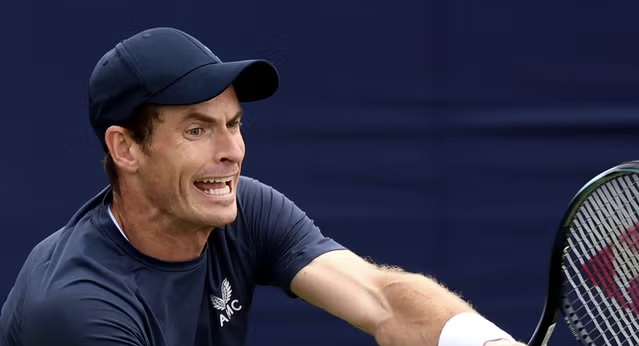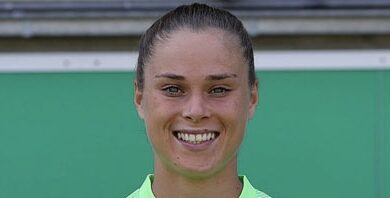The Routine Andy Murray Swears by Including Ice Baths and 4,000 Calories a Day

In his 19 years on the court, tennis champion Andy Murray has amassed three Grand Slam titles, a Davis Cup, and two Olympic singles gold medals. Now, in light of Emma Raducanu withdrawing from their mixed doubles match, it may seem like this could be the end of Murray’s stint at Wimbledon. However, in a recent interview with Men’s Health, he revealed that “the will to win is still there” as he prepares for his 2024 matches.
What habits does the 37-year-old Scot credit for his achievements? Post-match sushi, ice baths, and a hefty daily intake of 4,000 calories. Murray collaborates with Vital Proteins collagen to support his active lifestyle and recovery after tennis matches.
He shares insights into the training, diet, and mindset that drive the multiple Grand Slam champion’s success.
The Training
‘I train in the gym most days and we try to work the whole body,’ says Murray. ‘Not always on the same day but throughout the week. I do a lot of strength training. So deadlifts, squats, one legged squats, bench presses. I use a resistance band to strengthen my shoulders and upper back.’
For cardio, Murray favours an exercise bike, VersaClimber, or sprint training on the court. He also emphasises core training due to its crucial role in providing stability and power in tennis. ‘I do planks and side planks, hanging leg raises, and oblique twists using a cable machine or resistance band,’ he shared.
With Murray’s history of unfortunate injuries, it comes as no surprise that rehab moves are also a focal point of his training. ‘I stretch my lower back and mobilise my hips when I’m warming up,’ says Murray. ‘I use a medicine ball on court when we are training to help load my movement and strengthen my glutes and lower back which then supports my hip.
‘At the end of every gym session there’s usually a big chunk of stretching as well and that’s usually with my physio, Shane. There is always a balance between rehabbing and giving your body time to recover naturally, especially at my age – my strength and conditioning coach and my physio monitor that closely.’
The Diet
Murray consumes a massive 4,000 calories a day. Juggling his own diet while ensuring he has breakfast served for his four children is easier said than done.
‘I don’t eat with the children apart from breakfast, so that makes things easier. It means I don’t eat their leftovers which I’ve heard is terrible for your diet,’ says Murray. ‘It’s definitely much harder for me to stick to being good with my diet when I’m at home.
‘When I’m travelling, I eat pretty well because there aren’t cupboards full of biscuits to tempt me, or ice cream. I find ice cream quite hard to resist. I am pretty good with routine and I’m still really motivated, so that keeps me focussed with my eating. I work with a nutritionist so I get weekly meal plans and advice, and I try to follow that as closely as I can.’
Pre-match Murray will eat two hours before he’s on court. Usually a mix of protein and carbs – ‘like a bowl of pasta or rice with a chicken breast or sometimes a chicken Caesar salad.’
Hydration is also an important factor, too. ‘I used to cramp a lot, so it’s something I started a few years ago. I drink a big bottle of water with electrolytes in the two hours before my match. I don’t really snack much. There was a big pick n mix selection at Queens and I know a lot of the other players get stuck in, but I try not to. I will have a banana sometimes just before I go on court..
And post match?
‘My nutritionist has recommended that I eat 30 minutes after a match to help my body with its recovery,’ he says. ‘I’m also starving when I come off court. Sushi is my favourite thing to eat so if that’s available, I’ll go for that. I usually eat two boxes of sushi straight away and then I’ll have a third box after my press conference. My favourite sushi is spicy tuna and avocado rolls, with spicy mayo on the side.’
The Mindset
No stranger to adversity, Murray has had a lot to contend with in the last year. Towards the end of his match in Miami in March he suffered a severe injury to his ankle.
‘It’s been a difficult year for me,’ Murray admits. ‘I haven’t always been playing the way I’ve wanted to and I’ve had a few setbacks with injuries. I’m still really motivated for every match, even though I’m coming to the end of my career. The will to win is still there.’



